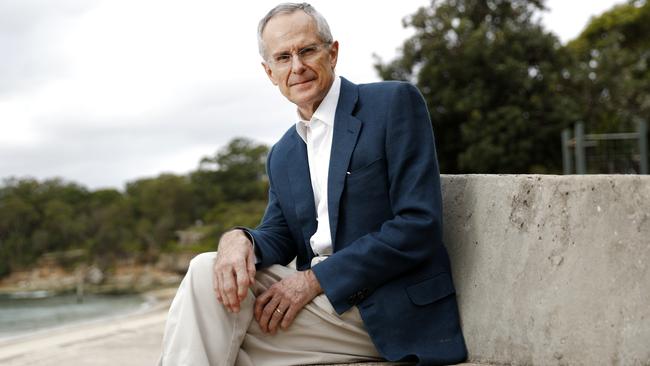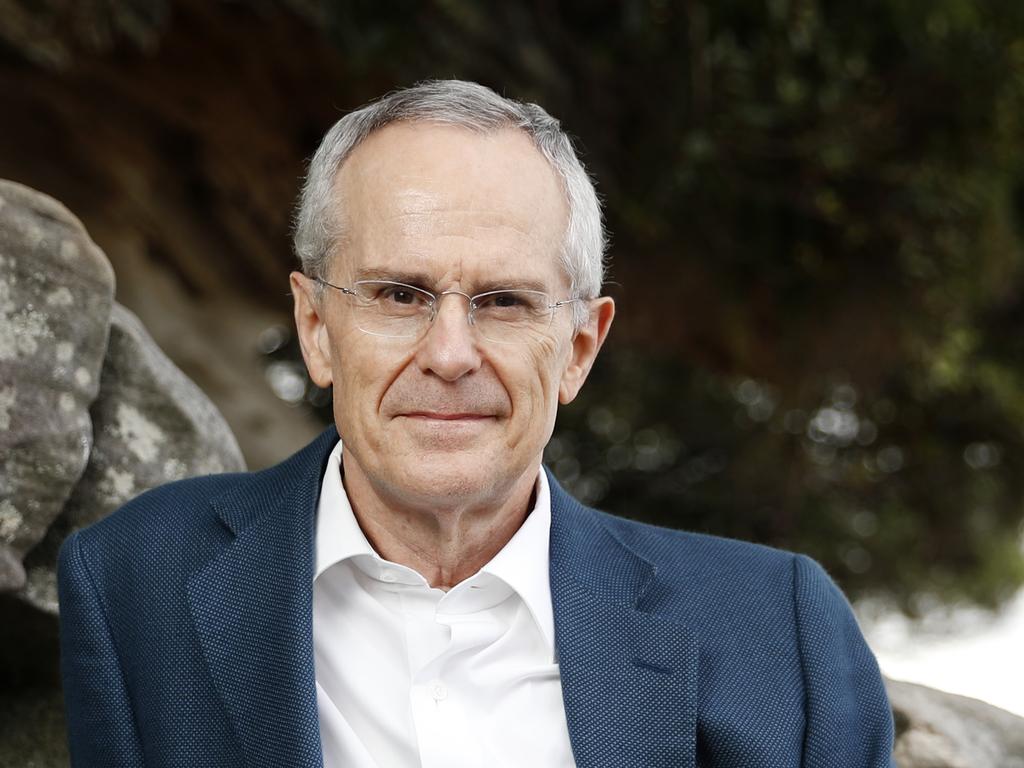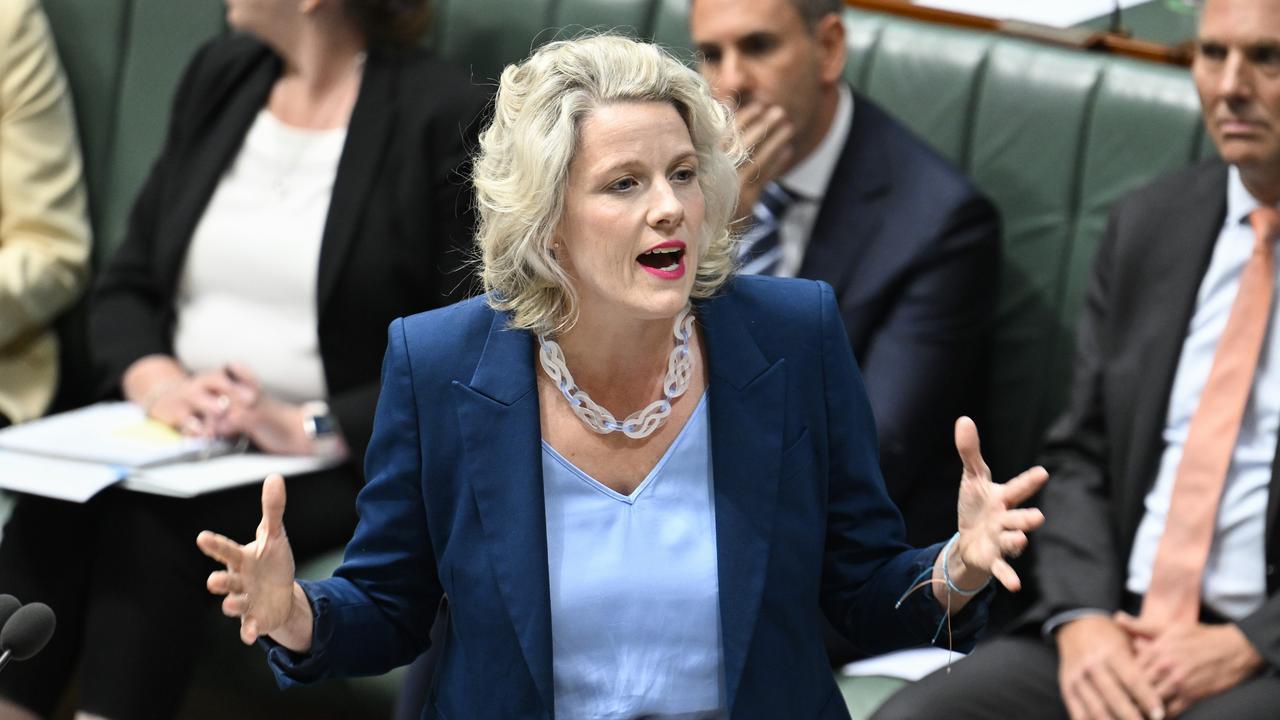Ten years on top for competition chief

On 1 August, Rod Sims chalks up a tenacious ten years at the top of Australia’s competition and consumer regulator, the ACCC.
Sims has unapologetically taken on the big end of town. Rules around abuse of market power have been tightened and consumer law penalties hiked. He has honed in on gas and electricity prices for customers.
He is leading the world as the regulator tackling the US tech giants to check their increasing market domination.
Yet during the pandemic, he has allowed supermarket giants to co-operate, trusting them to be part of Team Australia, to the surprise of some of his peer regulators overseas.
Things haven’t all gone his way, take the governments’ penchant for privatising monopolies. But the ‘To do’ list over the remaining 12 months of his third term is equally ambitious. Indeed, could there be a fourth?
After a decade under Sims, the ACCC is a very different beast. It has a bigger appetite for risk and moved far more into advocacy and policy to empower consumers and keep markets healthy.
“If we didn’t do it, who would?” Rod Sims asked several times in his first interview to mark the ten year milestone.
“I can still remember when I walked through the door” he said. A month into the job, Sims make a landmark speech at the Law Council to set out how he would approach the job. “I said I hope people say two things: our market economy is working better and that people have faith that our market economy works for them.”
It is a measure of Sims that the detail in this speech stands up, almost eerily so in such a tumultuous decade.
“It is stronger” said Sims of the regulator. “A bit more aggressive on enforcement cases and what is unquestionably true is that we are involved in many more things.”
In the 10 years, ACCC staffing has increased by 50 per cent. . Already the telco and transport regulator, it now has a permanent role in digital platforms, electricity, gas water, and financial services, all delivering expertise in these areas. “Previously we would just roam in and roam out of areas, now we have built up teams of experts” he said.
Rod Sims speaks from the kitchen office he’s taken over at home in locked down Sydney. Behind him sit three Sherrins, a tribute to the most important competition of all. “Freemantle we bet in 2013, Sydney we beat in 2014 and West Coast we beat in 2015” said the Hawkes tragic, pointing to each in turn.
From the get-go, Rod Sims had corporate behaviour in the crosshairs, deliberately taking on cases where the outcome was more risky. “We were at 100 per cent success rate. I took the view that that is being too conservative. If I see behaviour that is egregious, that should not be happening and I think it is in the spirit of what the Act is trying to do, I’ll take it on.”
The success rate is now about 80 per cent which Sims says is about right. “Sometimes you win, sometimes you don’t but you have got to be taking on more cases because otherwise you are not sending the deterrence message out. Just be very careful, we may come after you.”
One sweet victory on market power came in May over Tasmanian Ports, the first under the new Section 46 of the Competition and Consumer Act which now focuses on conduct.
Sims has found the going harder with Australia’s ports that have been privatised as monopolies which he views as a classic competition matter. This month the Federal Court threw out the ACCC’s case that claimed a 50 year ban on the coal Port of Newcastle becoming a container port was restricting competition. The judge called the likelihood of such a development fanciful and far-fetched.
In her reasoning the judge seemed at best to ignore the competition imperative. “My lawyers are still poring over that” said Sims who will made a decision on whether to appeal in the next week or so. “Competition matters and we are closing it off because we want to maximise the proceeds of sale for privatisation. It is just a tax on the economy to give governments proceeds now. We talk a lot about micro economic reform, well let’s stop damaging our economy.”
In the young E-conveyancing market, Sims says the states got together, set it up as a monopoly and then sold it as PEXA to Link. “They didn’t seek to get competition, they sold it as a monopoly. I go back to Adam Smith. The only way you get well served by the butcher the baker is if they know if you don’t give them good bread, they will buy it off next door. It’s such a fundamental point and I’m surprised that we are the only voice making the point” he said.
Sims will wait to be proved right on rising port costs. He certainly feels vindicated on the case he lost trying to stop AGL owning both the Bayswater and Liddell power stations, which made it the dominant power generator in three states. “The judge at the time said, what is the problem? There is plenty of capacity.” What followed was the abrupt closure of Hazelwood power station in Victoria and Northern in South Australia. “All of a sudden the excess capacity was gone, prices went through the roof. I think it was complete vindication.
Another standout court battle was the watchdog’s objection to the TPG Vodafone merger which ultimately went through. Sims says he sees both sides, including the struggles of TPG when the government outlawed its use of Huawei equipment. But he argues Australia has lost a challenger with Telstra, Optus and Vodafone three relatively equal players.
“The incumbents don’t want to lower price, in a three player market. So it was a tough call, but if we just keep allowing the bigger companies to swallow the players who are growing, wanting to challenge then again we damage our economy. And we have seen price rises post that acquisition. We have of course seen Mr Teoh leave and other TPG executives leave so it’s pretty much been a Vodafone takeover.”
In August Sims plans to deliver another major speech at the Law Council, advocating changes to mergers.
In advocacy Rod Sims has been relentless, first in changes to the Competition and Consumer Act and then in the big economic debates.
“We’ve had a very good run on advocacy. The biggest change is increasing the penalties for consumer law.” Fines have soared from a maximum of $1.1 million to the higher of $10 million or 10 per cent of turnover. “That’s just a massive change. I think every board room in Australia is aware that they have got to comply with the Australian consumer law. I don’t think that was the case when I walked through the door.”
“Why is it important that we, the ACCC do advocacy? The answer is because if we don’t, who will? On privatisation we are the only ones making this point. Section 46 wouldn’t have changed unless we pushed the point. And we played a big role in getting the consumer data right up and we took on the initial implementation roles.”
Inevitably, advocacy means politics. And here there is a stark comparison between the two regulators: a smooth operating ACCC and corporate cop ASIC which was bruised by the Royal Commission and later thrown into chaos over its leadership.
Rod Sims spent 20 years working in public policy, including as economic adviser to Bob Hawke and then spent another 18 years in the private sector in commercial strategy for big corporates.
“I keep in touch with the political offices a fair bit just to get a sense of what might annoy them a little versus what might annoy them a lot. I don’t think you can do this job unless you have a feel for the private sector. You can’t just bring a public servant into this job. But I think it helps a lot to know the public sector as well.”
The great coup over ten years is how Sims has radically broadened the ACCC’s remit. The regulator now influences the financial sector, the gas market, the electricity market, the water market with a huge study recently completed as well as ground breaking work on digital platforms.
In both mortgages and electricity, consumers learnt how the front book is priced much more cheaply than the back book, meaning new customers frequently had better deals than loyal customers. “The number of journalists who rang me and said I just rang the retailer up and I got a 30 per cent off my bill – that’s what happens” he said.
Rod Sims’ remit went global when in December 2017 the government asked the ACCC to take on the market power of the US tech giants with a digital platforms inquiry.
“With some market studies, we said no it shouldn’t be us. This one we chased and grabbed. I desperately wanted to get involved in these issues” said Sims.
What he did not anticipate, he says was the growth of the digital platforms. “If you want to use an app and you are on an iPhone, you have only one choice. You go through the App store. On an Android phone, 95 per cent of the time you have only one choice. If you want to do search, 95 per cent is through Google. If you want to do Adtech, Google controls the Adtech market. They will hate me saying it, but it’s statistically absolutely right.”
In America, antitrust battles continue with the tech giants, with Congress mired in politics. The ACCC’s approach was different, armed with information gathering powers, and a broad mandate to make policy recommendations. “We could look at these issues in a way that had not been looked at anywhere in the world” he said.
The first outcome in February this year was the News Media and Digital Platforms Mandatory Bargaining Code. “It is new regulation, new legislation” said Sims. “We didn’t act saying Google and Facebook have breached competition law. Yes we said they had substantial market power, yes we said that was the market failure which was damaging journalism which was of fundamental importance to society, and we recommended a news media bargaining code, that’s policy.”
“We are competition, consumer and regulation and we brought all that to bear in digital platforms. And again, just think which institution in the country could have recognised that problem and come up with that solution? I don’t think there is any.”
Last year, as Covid-19 hit the economy, Rod Sims joined Team Australia, opting to relax competition rules for the country’s most powerful companies like supermarkets. Internationally it was seen as a big call. “My international colleagues didn’t quite agree but I’m convinced we got it right” he said. “There were a few agencies saying, what’s the ACCC doing? They were saying whatever you do, competition is important, make sure you keep competition going. And I’m saying, hang on, you’re in a war. You have two munitions companies and you want them to compete while you’re at war? I agree they have got to compete every other time, but actually now is the time for co-ordination.”
Within three weeks, the ACCC had done 30 co-operation agreements to ease supply chains. “I sat in personally on all the early supermarket ones. There is no doubt in my view, the companies were trying to solve Australia’s problem. They weren’t trying to get ahead of others. And I saw that right across the board. Now I don’t expect that behaviour will continue once the crisis is gone” he added.
Rod Sims finishes his third term in August next year after a record innings in the top job. So, would he be open to an offer for a fourth term? After all, a new appointment is traditionally fiendishly political with governments, state and federal all having a say. “11 years is a great run. Ultimately it’s their call but I accept that after 11 years, most people are going to be thinking maybe that’s it.”
That decision is not for another year and as Sims says, in his world a year is a long way away with plenty to do. But with a daily routine starting with a 5am gym workout, he admits he’d be lying if he said he hadn’t the energy for another term. “I’m as enthusiastic and I hope as fit as when I started. I think I can still outrun most of the cabinet if it came to a standing start.”



